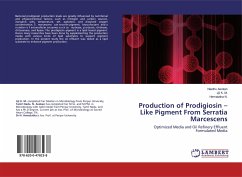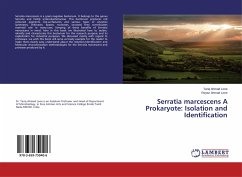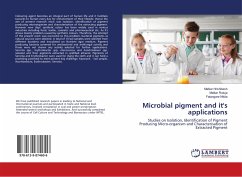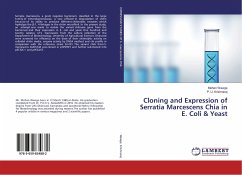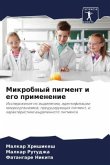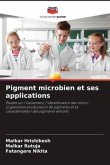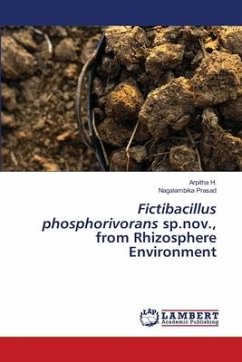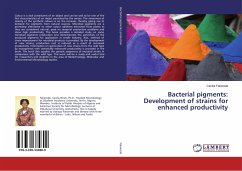Bacterial prodigiosin production levels are greatly influenced by nutritional and physicochemical factors, such as nitrogen and carbon sources, inorganic salts, temperature, pH, agitation, and dissolved oxygen concentration. S. marcescens can secrete pigment, biosurfactant and a number of extracellular enzymes such as nuclease, protease, chitinase, chitosanase, and lipase. The prodigiosin pigment is a lipid based pigment. Hence many researches have been done by supplementing the production media with various kinds of lipid substrates to support pigment production. In the present study the oil effluent was tested as a lipid substrate to enhance pigment production.
Bitte wählen Sie Ihr Anliegen aus.
Rechnungen
Retourenschein anfordern
Bestellstatus
Storno

